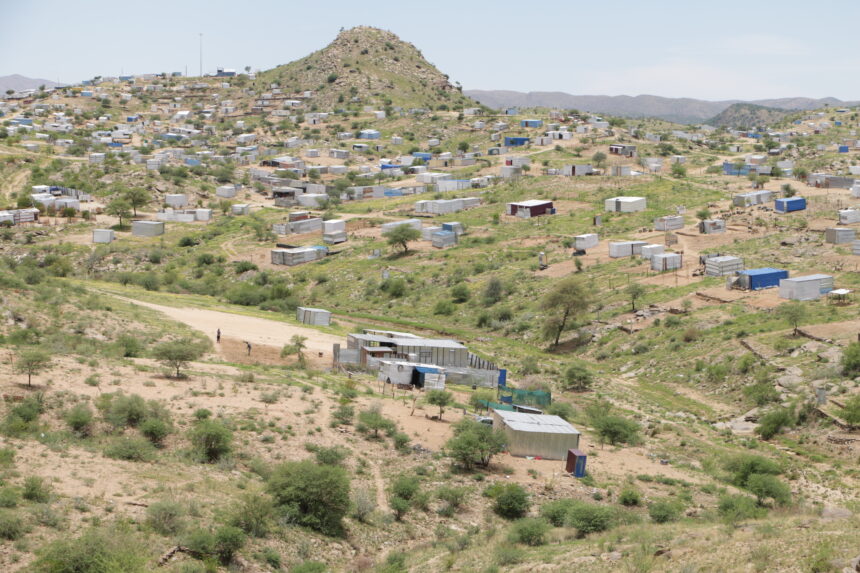Lahja Nashuuta
Government has allocated about N$700 million to formalise informal settlements in the country, Prime Minister Elijah Ngurare has announced.
The mass formalisation of informal settlements is expected to begin in Windhoek, Walvis Bay, Rundu, Keetmanshoop and Oshakati by May 2025. Aerial surveys are scheduled for completion by August 2025, with engineers set to be recruited by July 2025, the government plan stipulates.
Speaking during the informal settlements’ engagement meeting in Windhoek, Ngurare called on local and regional councillors as well as governors to ensure the successful implementation of government targets as outlined in the Swapo Party manifesto.
He urged the procurement and tendering processes to consider local young small and medium entrepreneurs.
Ngurare highlighted the government’s commitment to understanding the challenges faced by residents of the Khomas region, especially those living in informal settlements, and to finding practical, sustainable solutions to improve their quality of life.
“Informal settlements have long been a challenge, particularly in our region. These communities, though resilient and full of hope, face numerous obstacles that hinder their progress such as a lack of adequate housing, limited access to basic services like clean water and sanitation, as well as poor infrastructure.
These are challenges we cannot ignore. We must acknowledge the complexity of these issues and work together to make lasting change,” he observed.
The premier stated that the high population density has placed extreme pressure on service-rendering institutions in the region, slowing the pace of service delivery.
The population increase has also led to a surge in housing demand, with 46.9% of residents living in informal settlements. The Khomas region, with the highest population density in the country, has a total population of 494 605, as revealed in the 2023 Population and Housing Census.
The population growth has been primarily driven by urban migration.
People move to the Khomas region in search of better living conditions, but later settling in informal settlements. While formal housing developments exist, the cost remains a barrier for many, resulting in overcrowded conditions.
A significant portion of households in the Khomas region live in rented accommodation, reflecting the high cost of homeownership in the area.
Ngurare stressed that the Khomas region has been proactive in addressing these challenges through various initiatives. One such initiative is the Joint Informal Settlement Upgrading Project, a collaboration between the Khomas Regional Council, the Ministry of Urban and Rural Development, the City of Windhoek and the National Housing Enterprise.
Launched in 2020, this project aims to upgrade informal settlements and provide affordable housing to residents of the Khomas region.
“While these efforts are commendable, we acknowledge that much more needs to be done,” Ngurare said.
“We must tackle these issues head-on and ensure that informal settlements are no longer seen as a symbol of neglect, but as communities full of potential and promise,” he continued. The Swapo Party manifesto implementation plan states that the government aims to build 50 000 affordable homes, and formalise 50% of informal settlements by 2029.
The manifesto further outlines the creation of a special land delivery task force, for which N$2.5 billion is set aside.
Additionally, the township board will be restructured by May 2025, with the recruitment of professional staff beginning in the same month.
The implementation plan shows that the N$15 billion housing construction programmes will prioritise low-income-earners, and support local small and medium enterprises.
Housing targets include 3 000 units to be built by April 2026, with 10 000 new units annually from December 2026 to December 2029.
-lnashuuta@gmail.com
Photo: Heather Erdmann



